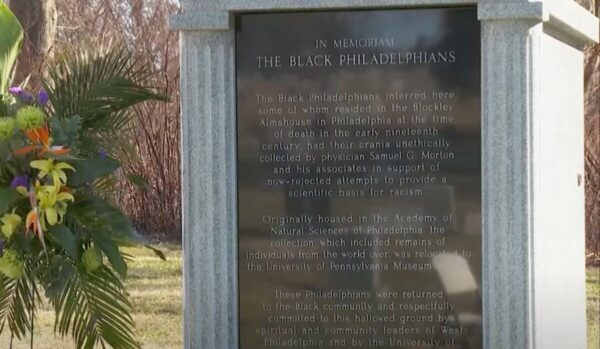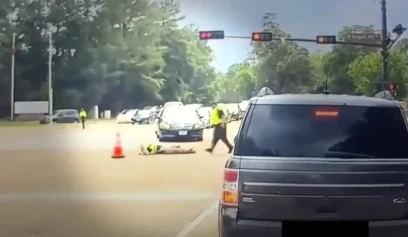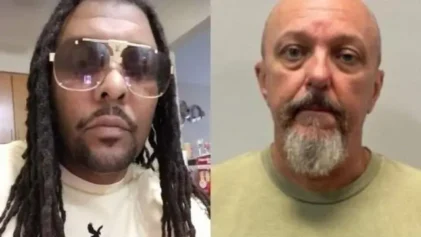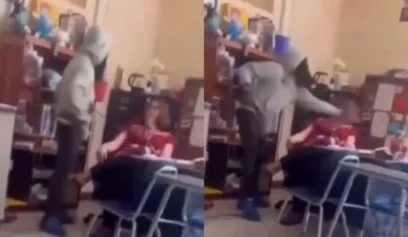After the University of Pennsylvania announced the reburial of the 19 Black people whose bones were used for racist scientific research, the community criticized officials at the Philadelphia school for their lack of involvement in the decision.
Spearheaded by physician Samuel George Morton in the 1830s, The Associated Press reported that the remains linked his study to prove that white people are the superior race. In addition, his work set out to give justification to slavery.
According to the report, Morton compiled 900 skulls, which were a part of the Morton Cranial Collection and expanded after his passing. Amid Penn Museum’s efforts to reverse its wrongdoing in the wake of the push for reparations, community members wanted their voices to be heard and called out its director.

“That’s not repatriation. We’re saying that Christopher Woods does not get to decide to do that,” activist Ally A. Muhammad told the AP. “The same institution that has been holding and exerting control for years over these captive ancestors is not the same institution that can give them ceremony.”
Like other museums around the globe, the university publicly apologized for its unethical practices and handling of the remains they were still using in their teachings in 2020.
“It is time for these individuals to be returned to their ancestral communities, wherever possible, as a step toward atonement and repair for the racist and colonial practices that were integral to the formation of these collections. We will also reassess our practices of collecting, stewarding, displaying, and researching human remains,” Director Christopher Woods wrote in 2021.
Per the outlet, it got permission from the court to bury the remains without knowing their identities. The remains were interred on Jan. 22.
As the New York Post reported, only one of them has been identified by Rutgers University anthropological archeologist professor Lyra Monteiro, who found out via public archives that the mother of one of the subjects was Native American.
“They never did any research themselves on who these people were, they took Morton’s word for it,” Monteiro said, per the Post. “The people who aren’t even willing to do the research should not be doing this.”
The remains were buried at a historically Black-owned Eden Cemetery located in Darby, Pennsylvania. However, the remains with Native American ancestry were pulled from the above-ground reburial site to be properly returned through the Native American Graves Protection and Repatriation Act, the outlet reported.
The federal law requires the human remains or funerary objects to be transferred to “lineal descendants, and to Indian tribes, Alaska Native Corporations, and Native Hawaiian organizations,” per the US Department of the Interior Bureau of Land Management.
The Black Philadelphians Descendant Community Group expressed their disappointment in how the museum quickly buried the deceased, as many members of the organization are descendants.
“In light of this new information, they are taking time to process and consider how best to honor their ancestors at a future time,” the organization said.
The museum said it wanted “to balance prioritizing the human dignity of the individuals,” and the burial “was scheduled ahead of the interfaith ceremony and blessing,” per the outlets.
Museums in New York and Germany have acknowledged the mishandling of human remains in their possession and how they plan to return them to their descendants.


